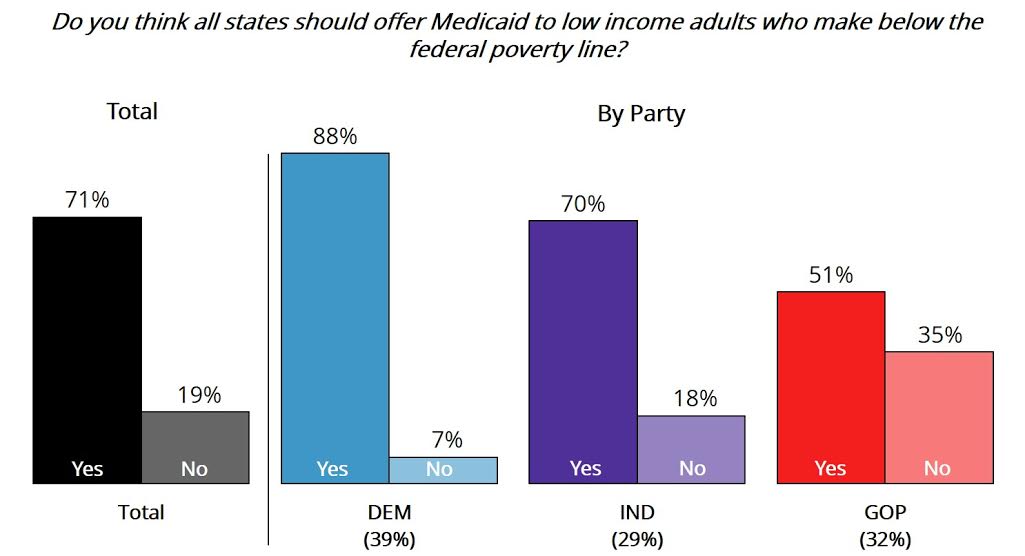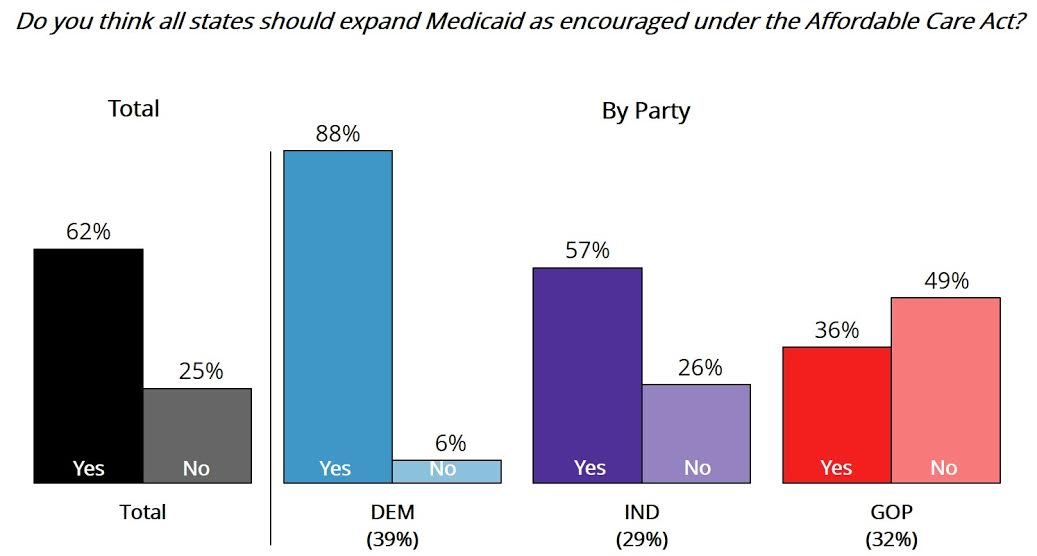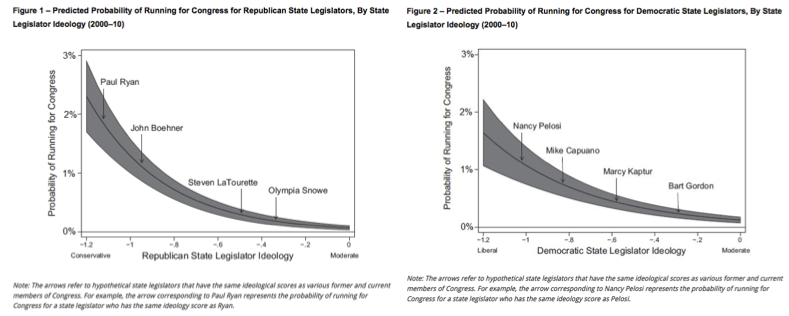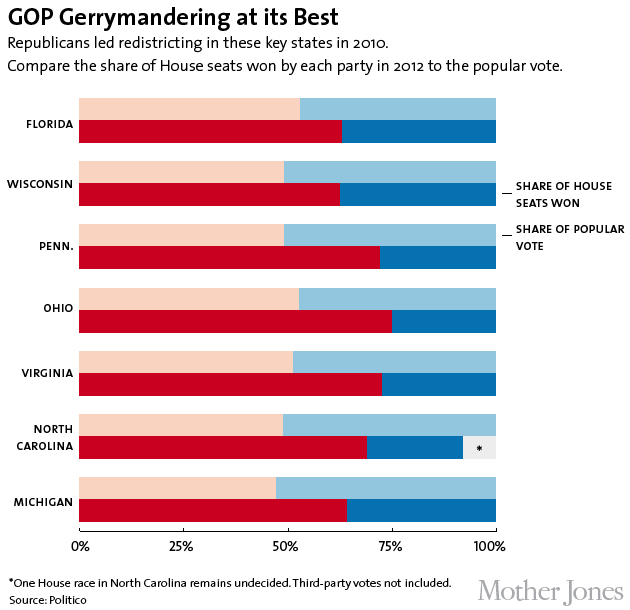The always informative Jonathan Cohn at the New Republic recently wrote about an opinion poll that seems to show significant support for at least one part of The Affordable Care Act. It showed a majority not only of Democrats and independents, but also Republicans, supporting Medicaid expansion:

Only one problem with that finding. Ask the same question while mentioning that this policy is encouraged by the Affordable Care Act, and now only about a third of Republicans support the idea:
 So much for objective thinking!
So much for objective thinking!
What Jonathan Gruber Didn't Say About Obamacare
 Jonathan Gruber went from unknown to infamous in the last few weeks, a result of disparaging comments he made about the Affordable Care Act (aka Obamacare) and even more disparaging ones he made about the American people. According to Gruber, the Obama administration counted on “the stupidity of the American voter” to pass the bill. In fact, the Obama team’s “lack of transparency” was deliberate, because they believed the law would not have passed if people fully understood it.
Jonathan Gruber went from unknown to infamous in the last few weeks, a result of disparaging comments he made about the Affordable Care Act (aka Obamacare) and even more disparaging ones he made about the American people. According to Gruber, the Obama administration counted on “the stupidity of the American voter” to pass the bill. In fact, the Obama team’s “lack of transparency” was deliberate, because they believed the law would not have passed if people fully understood it.
Under the sharp glare of our politicized media, Gruber’s comments have led to predictable disputes about what the comments really meant, and whether he accurately described the Obama administration and, of course, about who-the-heck Gruber is. He is described as an “architect” of the law on the right. On the left, he is portrayed as “did you say ‘Gruden’? ‘Goober?’ Sorry never heard of him.”
I’m not here to analyze Gruber’s infamous remarks. Instead, I am here to remark upon what Gruber has not said about Obamacare. (To read more and leave comments, please visit Forbes.)
Why We Cannot Trust Political Pundits, or Ourselves
Take a look at the image below and decide what you are seeing:

Some of you might have seen a “B.” Others might have seen the number 13. The image, after all, is ambiguous. For that reason, in fact, it was used by researchers to study how our hopes influence our perceptions.
The study design was straightforward. One group of participants was told that each time a number flashed up on the screen, they would get to drink a tasty beverage whereas when a letter appeared, they would be forced to drink a noxious health-food smoothie. (I am guessing kale was involved!) The researches then showed people this image for only 400 milliseconds and these folks thought they saw the number 13. In another group of participants, the researchers reversed punishment and reward, with letters now leading to tasty beverages. In that setting, most people viewing this image saw the letter “B.”
Are you worried that people are lying? (Please visit Forbes to read the article in full.)
Moderate Politicans: No Reason to Run for Office
A while back, my friend and colleague Brendan Nyhan sent out a disturbing picture showing that moderate politicians, from both the Democratic and Republican parties, are less likely to run for seats in the House of Representatives than more extreme politicians:

Very disturbing trend! It is hard to see the policies of our country improving if we don’t elect a more reasonable group of politicians.
How To Trick People Into Caring About Healthcare
 In health policy circles (yes, those exist!), experts often refer to three aims for a modern healthcare system – to offer (1) universal access to (2) high quality medical care at (3) an affordable cost. Access, quality, and cost: a possibly unachievable set of goals, certainly in the U.S., where the quality of our care is decent (but uneven), while access to care and the high cost of our care compare dismally to almost every other developed country.
In health policy circles (yes, those exist!), experts often refer to three aims for a modern healthcare system – to offer (1) universal access to (2) high quality medical care at (3) an affordable cost. Access, quality, and cost: a possibly unachievable set of goals, certainly in the U.S., where the quality of our care is decent (but uneven), while access to care and the high cost of our care compare dismally to almost every other developed country.
Suppose you were fixing the U.S. healthcare system and realized that increasing access to care would make it harder to control costs. Which of the three aims would you make your priority? I asked this question to a couple groups of people. One group came out strongly in favor of access, the other in favor of cost control. Can you guess who these two groups of people were?
I asked a group of undergrads at Duke to make the same guess. These undergraduates were taking my health policy course, and with that background were able to make some good guesses. Those prioritizing access: Some thought it might be a rural population with limited access to subspecialists. Others thought it might be a poor population with little access to health insurance. Those prioritizing costs: Some thought these might be fiscal conservatives, others thought they were large employers trying to hold down the cost of employee benefits. These were all really good guesses. Only one problem with them… (Read more and comment at Forbes)
Do People on the Right Feel Superior to Those on the Left?
 Most of us have at least one cranky old relative who not only has stronger opinions than the rest of us, but is also convinced that those opinions are superior to ours. Not just content to believe that, say, voter ID laws are a good idea, this relative is also derisive of anyone with a different view.
Most of us have at least one cranky old relative who not only has stronger opinions than the rest of us, but is also convinced that those opinions are superior to ours. Not just content to believe that, say, voter ID laws are a good idea, this relative is also derisive of anyone with a different view.
Are those cranky old relatives more likely to be Republican than Democrat? Put another way—are opinionated conservatives more certain of the superiority of their views than opinionated liberals? …(Read more and view comments at Forbes)
Has Obamacare Made Restaurants Partisan?
Politics in the US is discouragingly partisan. National politics has become increasingly partisan since at least the late ’60s, when the passage of civil rights legislation influenced many conservative southern Democrats to join the Republican Party. Even state politics has become more partisan, where even famously nice people in Wisconsin have found themselves battling their neighbors across political divisions. Fortunately, most of life does not force us to confront our political differences, meaning we can go out to dinner with our family and friends, sharing space with other diners free from concern that we will be confronted with partisan rhetoric.
Until now.
According to a report on CNN Money, some restaurants in Florida are now making sure their patrons recognize the burdens being placed upon them by the Affordable Care Act. Here’s a copy of a receipt from one of these restaurants…(Read more and view comments at Forbes)
Broken Democracy
Until recently, the state of North Carolina, where I live, was a bastion of political moderation, especially compared to our neighbors in the southeast. Our politics were moderate in part because the Democratic Party remained relatively strong in the state, and to survive in this region of the country had embraced center left, rather than the far left. Our politics were also moderate because of the influx of Northerners, arriving to places like the Raleigh Durham area where I live. As a result of this moderation, we developed high-tech industry corridors, provided excellent funding to our educational system, and became a pretty darn nice place to live.
This past year, Republicans took control of state government, and did not exactly pursue an agenda of political moderation. Moreover, this swing to the right was not justified by the political beliefs of the North Carolina population. Instead, a decent amount of the Republican’s political power resulted from gerrymandering, after the 2010 census. To get a sense of that, take a look at this figure from Mother Jones.

We really ought to give the job of political redistricting to nonpartisan commissions. Our democracy deserves better than this!
(Click here to view comments)
Malpractice Claims Feel Endless Because…They Are!
 I am very fortunate to have never been sued. That is not necessarily because of my amazing ability as a physician. I always practiced in Veterans Affairs medical centers, where my status as a federal employee meant I would not get sued by my patients. I also had an incredibly appreciative patient population.
I am very fortunate to have never been sued. That is not necessarily because of my amazing ability as a physician. I always practiced in Veterans Affairs medical centers, where my status as a federal employee meant I would not get sued by my patients. I also had an incredibly appreciative patient population.
But I know that most of my physician peers have been sued, successfully or unsuccessfully, at least once in their careers. And I know that these lawsuits take an emotional toll upon them. To make matters worse, malpractice lawsuits have a nagging tendency to drag themselves out for months upon months…(Read more and view comments at Forbes)
What Made Our Greatest Surgeon General So Great
 I have been thinking a lot about C Everett Koop lately, ever since his death on February 25 at the ripe old age of 96 and more recently with the announcement that our current Surgeon General, Regina Benjamin, is planning to step down from that post. In particular, I have been pondering what made Koop such an effective Surgeon General, and what has made it so hard for his successors to approach even a portion of his impact… (Read more and view comments at Forbes)
I have been thinking a lot about C Everett Koop lately, ever since his death on February 25 at the ripe old age of 96 and more recently with the announcement that our current Surgeon General, Regina Benjamin, is planning to step down from that post. In particular, I have been pondering what made Koop such an effective Surgeon General, and what has made it so hard for his successors to approach even a portion of his impact… (Read more and view comments at Forbes)
